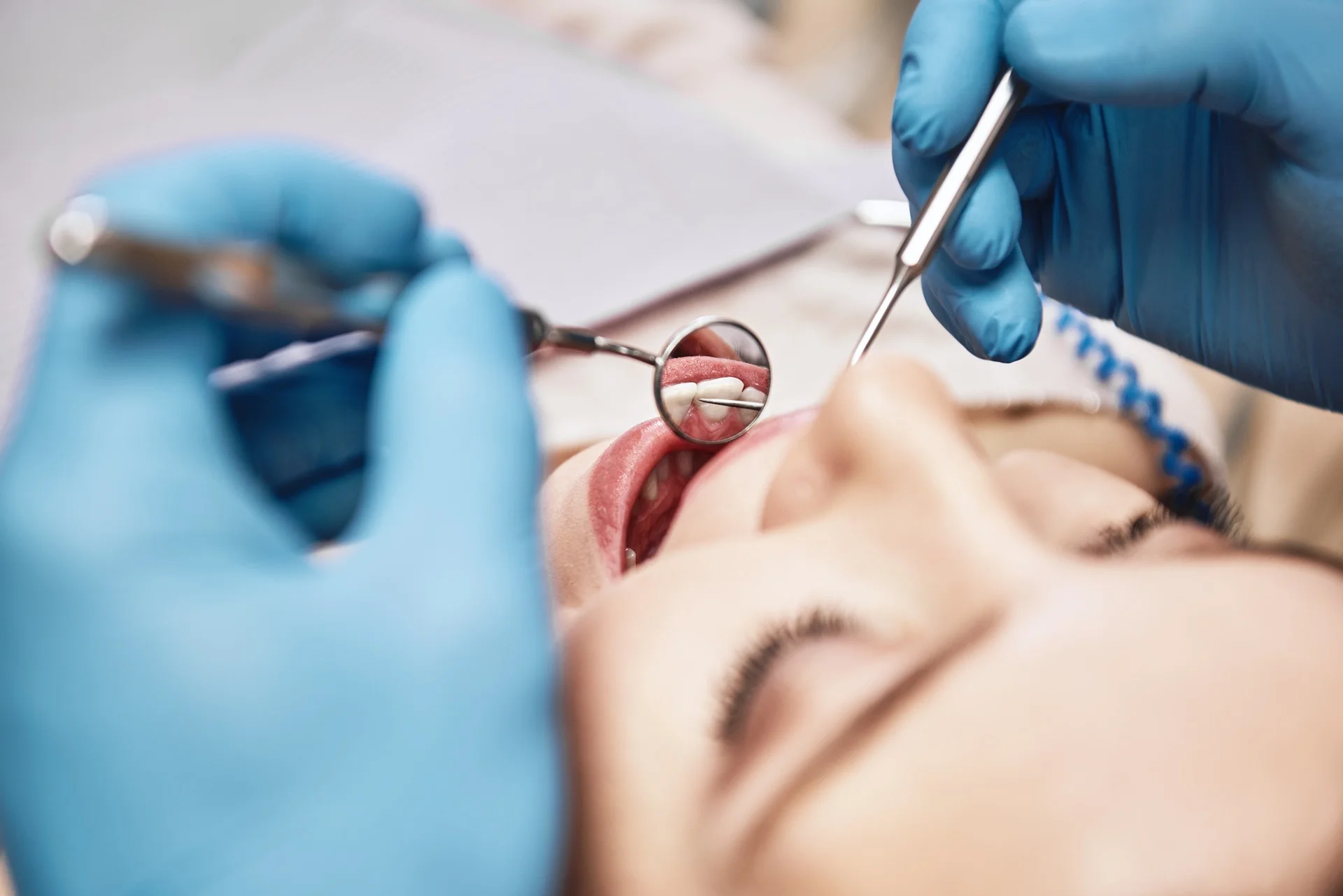Periodontal Care in Harrisburg, NC

Periodontal Education in Harrisburg, NC
Periodontal care is essential for maintaining gum health and supporting structures. This treatment addresses various stages of gum disease, from mild gingivitis to more severe periodontitis. Early intervention with periodontal care in Harrisburg, NC. It can prevent gum disease progression, including symptoms such as swelling, redness, bleeding, and the potential loss of teeth. Effective periodontal treatment may involve scaling and root planning, which removes plaque and tartar below the gum line, and more advanced procedures may include surgical interventions to restore supportive tissues.
Periodontal care in Harrisburg, NC, is vital for anyone experiencing signs of gum disease or for those who wish to maintain optimal oral health. This treatment works by thoroughly removing the pockets around teeth to prevent bone damage. Patients can expect reduced gum inflammation and bleeding and, over time, a stabilization of their condition. Dental visits are essential to managing the health of your gums. If you are experiencing symptoms such as persistent bad breath, loose teeth, or receding gums, consider periodontal care at Mint Dental. Contact us today to schedule an appointment to keep your smile healthy and beautiful.
Periodontal care preserves gum health, supported by night guards for protection and root canals to save infected teeth. Prioritize your gum health today!
Common Symptoms of Gum Disease
Gum disease can vary in severity, starting with the mildest form, known as gingivitis. Common signs of gingivitis include:
- Pink-tinged toothbrush after brushing
- Blood after brushing or flossing your teeth
- Gums that bleed easily
- Persistent bad breath
- Swollen or puffy gums
Without appropriate treatment, gingivitis may advance to a more serious condition called periodontitis. This severe stage of gum disease can cause the following symptoms:
- Tender gums when touched
- Gums that appear bright red, dusky red, or purplish
- Loose teeth or tooth loss
- New gaps forming between your teeth
- Having difficulty chewing
- Teeth pull away from your gums or recede
- Pus between your teeth and gums
- Whenever you bite, your teeth fit differently
Gum Disease Treatments in Harrisburg, NC
Chlorhexidine Treatment
A straightforward approach to combating gum disease involves using an antibacterial mouthwash. Gum disease stems from harmful bacteria accumulation. Instead of relying solely on antibiotics like pills, we often recommend Chlorhexidine Treatments in Harrisburg, NC, which effectively combats these bacteria. Regular use of this mouthwash and good oral hygiene can significantly reduce infectious bacteria in your mouth.
Scaling & Root Planing
Root planing and scaling are the most common methods to treat periodontitis. This thorough cleaning technique removes tartar from above and below the gum line with specialized dental tools. Root planning follows, helping to reattach the gums to the teeth and facilitate a full recovery.
ARESTIN(tm)
For cases requiring extra care, we utilize ARESTIN(tm), an antibiotic specifically designed for direct application into infected tooth pockets. After scaling, a small amount of ARESTIN(tm) is inserted into the tooth pocket, where it is continuously released over several weeks to eradicate any lingering bacteria. This targeted treatment is excellent for ensuring long-term relief from gum disease symptoms.
FAQ's
What is Periodontal Care?
Periodontal care involves treatments to prevent, diagnose, and treat gum disease. It includes professional cleaning of the gum line and, if necessary, surgical procedures to repair and regenerate damaged gum and bone tissues.
Who needs Periodontal Care in Harrisburg, NC?
Anyone experiencing symptoms of gum disease, such as bleeding, swelling, or receding gums, can benefit from periodontal care. It is also recommended for individuals diagnosed with diabetes, which affects oral health.
How often should I undergo Periodontal Care?
The frequency of periodontal care depends on the severity of your gum disease. Most dental professionals recommend regular check-ups and cleanings every six months, but more frequent visits may be necessary if you have advanced periodontitis.
What can I expect after receiving Periodontal Care?
After periodontal treatment, patients typically notice improved gum health, such as reduced bleeding and swelling. Ongoing maintenance is crucial to prevent further progression of gum disease.
Is Periodontal Care painful?
Most periodontal treatments involve minimal discomfort, especially early in the disease’s progression. Local anesthesia can be used during more invasive procedures to minimize any discomfort.
How does Periodontal Care contribute to overall health?
Periodontal care treats gum disease, which helps reduce the risk of associated systemic conditions, such as heart disease and diabetes. Healthy gums contribute to overall wellness and improve quality of life.

